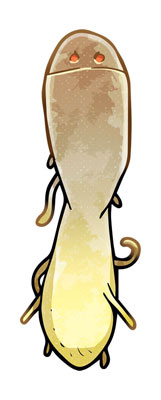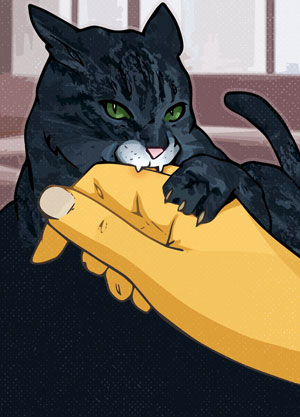By continuing your visit to this site, you accept the use of cookies.
Learn + I agreePasteurella multocida

The bacterium Pasteurella multocida was first described in 1879 and named to honor Louis Pasteur, who dedicated part of his researches to its study.
Pasteurella multocida is part of the normal flora in the muzzle and digestive tract of cats and dogs
It can be found in the saliva of 70-90% of cats and 30-50% of dogs, as well as in horses, pigs, rabbits, rats, or chicken.

Careful with cat and dog bites
This bacterium is often transmitted to humans through a cat or dog bite. Three out of four cat bites and half of all dog bites will lead to Pasteurella multocida infections. The transmission can on rare occasion derive from a cat scratch.

Serious complications
Pasteurella multocida causes a disease called Pasteurellosis. It is characterized by a lump and very quick intense pain at the wound. If it is not treated with antibiotics1, this disease can cause severe and invalidating complications, by spreading to the joints and bones. It may also affect the heart and lead to endocarditis2.

The right reflex
- Never take lightly a cat or dog bite, even from your favorite pet.
- Clean the wound abundantly with water and soap.
- Disinfect the wound then make a bandage with a sterile compress.
- In any case, consult your doctor. If needed, he will prescribe antibiotics1, to avoid any risk of Pasteurella multocida infection complications.
Antibiotic1 = A drug which allows to kill bacteria or at least to stop their growth. Antibiotics act against bacteria, but do not help treat diseases caused by viruses and parasites.
Endocarditis2 = Inflammation of the endocardium. The endocardium is the membrane that lines the heart’s inner wall and covers the cardiac valves. Endocarditis is rare but can be very serious.
